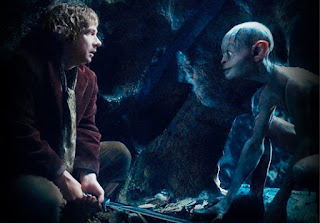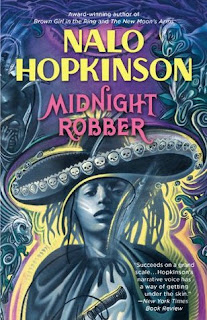Week Six: Fantasy
Like most people I fell in love with Peter Jackson’s movie
adaptation of “The Lord of the Rings”. In High School I read most of the Hobbit
and found it a very different world from the movies, for example, the worgs
could talk. But it was not these small details that made it a different
experience, I would learn later that the story is intended to be read the child
as a bedtime story, as Tolkein would have done so for his own children. This is
due to Tolkein’s own love and respect for oral tradition, which makes sense as
a linguist. Tolkein believed in the power of songs and poetry to convey information
and stories through generations, something epics like Beowulf had to rely on to
be told. However, the most memorable chapter, in my opinion, is the fifth
chapter where riddles become the central focus.
It is this chapter
where we see Bilbo’s survival depend on his cunning. Despite the hero’s journey
applying to Bilbo quite easily, he is not a traditional hero. He is small, not
a fighter, he is called the ‘burglar’ and would be considered a rogue by
current fantasy staple. In this chapter we see his strength. In this chapter he
and Gollum play a game of riddles, the prize being Bilbo’s life and freedom.
They start off with simple ones that already exist in the world, as supported
by the narrative, which also serve to state the importance of oral tradition on
the character’s lives. Both of them seem equally matched until Bilbo asked the
final question, one that I still remember from years ago- “What have a got in
my pocket?” In this way, through aspects of Oral Tradition, Tolkein makes a
memorable story.


Comments
Post a Comment